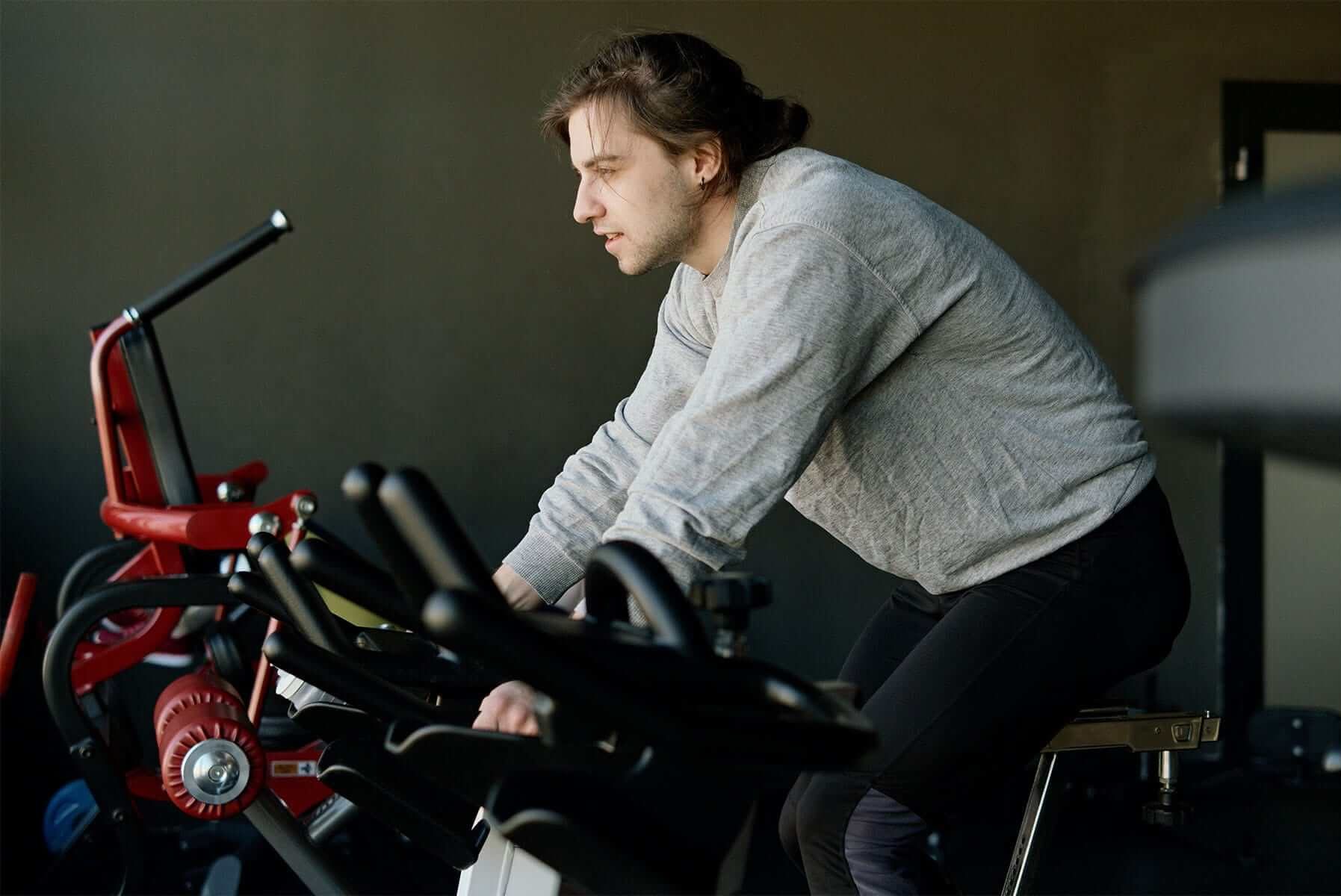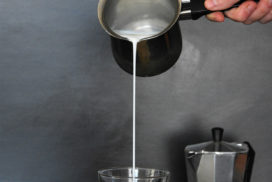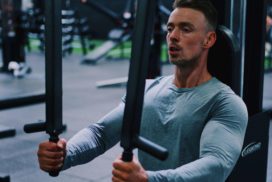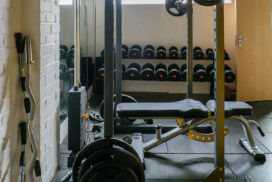The subject of cardio is a divisive topic within the fitness community.
Some believe that cardio is never beneficial for making gains, while others hold the opinion that cardio is needed both for health and for losing fat, and does not have any negative effects on building and maintaining muscle.
While cardio does not help make gains, as long as you account for the energy expenditure of additional exercise in your daily caloric intake, cardio will not kill gains.
Too much cardio can have a negative impact on performance, however, so it is necessary to make sure you are only doing the amount of cardio you need to and that it is not interfering with your recovery from weightlifting.
The best time to do cardio is 1-2 hours after a workout session, after you’ve already eaten, given your body enough time to rest, and begun the process of protein synthesis. If you do cardio too soon after a workout, you risk further elevating your cortisol and pushing yourself into a catabolic state, where your body is more likely to use muscle for energy as opposed to building muscle tissue.
If the cardio session is short, intense, and is done at least 1-2 hours after weightlifting and a meal, then it will not kill gains. But the full extent of the impact that cardio will have on building muscle is dependent on a few different factors.
The Effect of Cardio on Gains
The effect that cardio has on gains depends on several factors. These are the main factors that determine wether or not cardio will affect building and holding on to muscle.
- The amount of calories burned from the cardio you’re doing
- Your daily caloric intake
- The kind of cardio you’re doing
- Whether you’re doing cardio before or after weightlifting
- How much time you’re spending doing cardio
- Your current body fat percentage
Cardio and Caloric Intake
The most important determining factor for the effect of cardio on gains is your daily caloric intake.
All cardio burns calories. If you are on a cut and are eating in a caloric deficit, then cardio can help keep your energy expenditure high, meaning your energy intake, or calories, can be higher as well.
If you are on a bulk, however, then doing cardio could potentially lower your calories to the point where you are in longer in a caloric surplus. If you are no longer in a caloric surplus, then building muscle is going to be much more difficult and the results from lifting will be diminished.
To account for cardio when on a bulk, it is essential to know how many calories are being burned so that you consume enough calories overall to keep you in an energy surplus. If you factor in the calories burned from cardio into your daily caloric intake, then making gains will not be negatively impacted.
Aerobic vs. Anaerobic Cardio
To determine the type of cardio to do, you need to know the difference between aerobic cardio and anaerobic cardio.
Aerobic cardio is exercise where the body uses oxygen as its main source of energy. Aerobic cardio is less strenuous and longer than anaerobic cardio and will burn calories at a slower rate. Anaerobic cardio is exercise where the body uses glycogen as the source of energy. Anaerobic cardio is quicker, more intense, and will burn calories at a faster rate.
One example of aerobic cardio is long distance running. If you are running for 2 hours after your workout, then that undoubtedly will have a negative impact on your results since the concentrations of your anabolic hormones will be reduced, your joints will be inflamed, and you will burn more energy, meaning less calories will be available for repairing the muscles damaged from weightlifting.
This study on the effect of endurance training on muscle and hormones found that combining aerobic cardio with weightlifting led to worse results from lifting.
Overall, anaerobic cardio is the best form of cardio for weightlifters. Some examples of the good anaerobic cardio for weightlifters to do are battle rope training, boxing, sprints, stationary bicycling, and swimming.
Cardio Before vs. After Weightlifting
If your two options for when to do cardio are right before or right after a workout, it is better to do your cardio session immediately after weightlifting.
A cardio session before resistance training will use up muscle glycogen stores and deplete the energy needed to workout. If you use all your glycogen for cardio, your strength during a workout will be reduced, making it significantly more difficult to accomplish progress overload and make gains.
The Amount of Time You’re Doing Cardio
In addition to the time of your cardio relative to when you do weightlifting, the actual time you spend doing cardio is also a factor for how much effect cardio has on gains.
Longer cardio sessions are more likely to increase levels of catabolic hormones since the body needs energy to sustain endurance training and is forced to breakdown molecules. When catabolic hormones like cortisol are increased, anabolic hormones, like testosterone, are decreased and your overall energy, drive, mood, and gains from lifting will all be negatively affected.
The best range of time for doing cardio is 25-30 minutes.
Body Composition and Body Fat Percentage
Lastly, your body composition and body fat percentage both matter for how cardio affects building and keeping muscle.
For those that are already lean and have low body fat levels, cardio is not necessary unless you are training for a sport that requires cardio. Since the purpose of cardio for weightlifters is to burn calories, and the body can use both fat and muscle for energy, once you already have low amounts of fat, cardio puts you at high risk for losing more muscle than is ideal.
When Should You Do Cardio?
The best time to do cardio is after a meal following your workout. If you eat after a workout and give yourself at least 1-2 hours of recovery and repair from the training session, the cardio will have very little to no negative effect at all on building muscle.
If your workout is in the evening then it is possible that the cardio will affect your sleep so, in that case morning cardio is most likely better.
Summary
Concluding, cardio after weightlifting does not kill gains as long as the cardio is done at least 1-2 hours after the workout and there is a meal in between to supply protein for muscle repair and replenish glycogen.
For more on weightlifting, cardio, and building muscle, such as the positive and negative effects of training both in the morning and at night every day and if feeder workout training is effective or not, click here.







